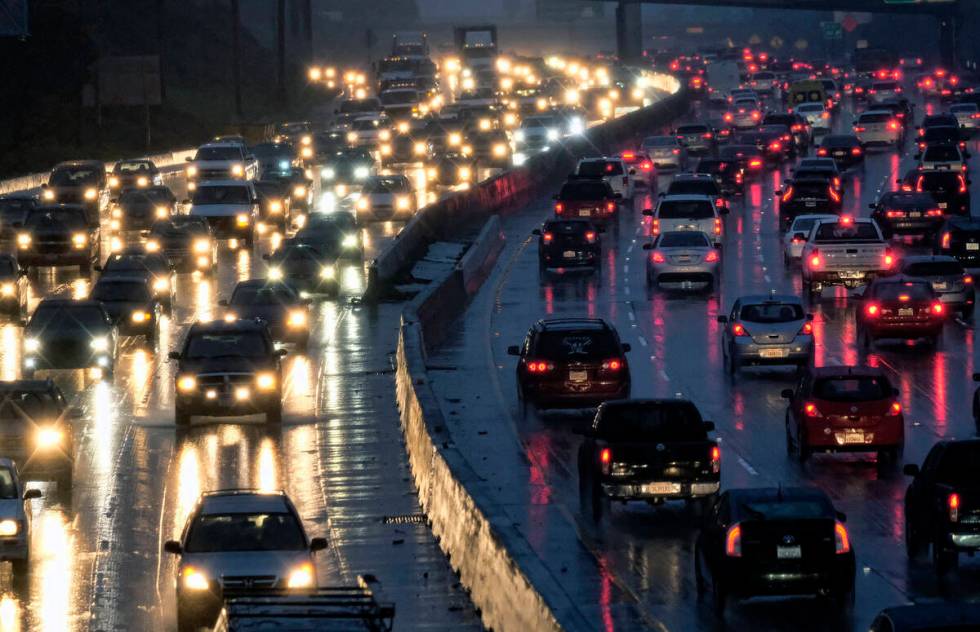COMMENTARY: For climate alarmists, the end justifies the means

On Aug. 25, California announced that it had accomplished what many thought might be impossible: finding another way to make life difficult for its citizens — this time by banning the sale of new gasoline-powered vehicles.
California already has an affordable housing crisis, the worst roads in the country and the most excessive business regulation. All of this has led to an explosive number of its citizens leaving the state. This new measure will speed up that process.
While climate alarmists have hailed the mandate as another step in the fight against global warming, experts have pointed out that it will have little to no positive effect on the climate. This measure couldn’t come at a worse time. Buying a new electric vehicle is not a priority for California residents who continue to contend with President Joe Biden’s economic imprudence.
But who are we kidding? The progressives who pass laws such as these have been out of touch with their constituents for decades. To them, the utopian ends justify the calamitous means.
Consider this: According to the Education Data Initiative, 10 percent of Californians are under student loan debt, with an average debt of $37,084. California also boasts the largest homeless population in America, a staggering 160,000 people and growing by the day. That number accounts for more than 20 percent of the U.S. homeless population. Sadly, last year California ranked dead last for Quality of Life for its residents, according to U.S. News & World Report’s annual survey.
In a state that has seen its middle class either evaporate or evacuate over the last 20 years, there is simply no justification for strapping low- and middle-class households with an additional payment for a new electric vehicle that costs $66,000, on average.
The ban is more egregious when considered in the context of the energy crisis that plagues California. Just days after the ban on gas engines was announced, Californians were alerted that electricity shortages were occurring, and they would need to take extra measures to conserve and ration their energy use. This included notably not charging their electric vehicles during peak hours of the day.
How are Californians expected to switch to electric vehicles when the state doesn’t have the electric infrastructure to meet current power demands? You don’t need to be an expert on energy to realize that this is a recipe for disaster. There is no indication that a robust EV grid is attainable within the state’s timeline for the ban.
Tragically, if we have learned anything in the past few years from progressives, the blame for failure will be shifted to people who were not responsible for this faulty policy. Instead, American taxpayers will ultimately bear the brunt of this ill-conceived scheme.
In recent years even the notion that electric vehicles create a safer and cleaner world has been called into question. John Lesser of the Manhattan Institute published research indicating that electric vehicles — due to the increased power demand they would require from the current mix of electricity sources — will actually increase overall emissions of sulfur dioxide, oxides of nitrogen and particulates, versus new clean and efficient gas-powered counterparts.
In 2019, the World Economic Forum detailed the human rights costs of mining for elements used to manufacture EV batteries. The Forum referenced an Amnesty International report that showed children as young as 7 working in artisanal cobalt mines for less than a dollar per day, many of whom had acquired chronic lung illnesses.
One of the largest cobalt mines in the world, in the Democratic Republic of the Congo, was recently bought by China through a firm with which Hunter Biden had significant business ties.
It’s fair to wonder what the motivation is to move the United States to electric energy when the sale of raw materials directly benefits our politicians and their families’ international business dealings. It certainly isn’t to make the world greener.
The implications of this mandate will create a ripple effect for decades to come. While Californians decide whether they will sacrifice their retirement to buy an electric vehicle that they may or may not be able to charge, China will be laughing its way to the bank. The left may celebrate this achievement, but it won’t likely lead to a cleaner environment or a more prosperous citizenry.
Nathanael Bennett is a fellow with American Commitment, a conservative group that supports free markets, limited government, property rights and individual freedom. He wrote this for InsideSources.com.